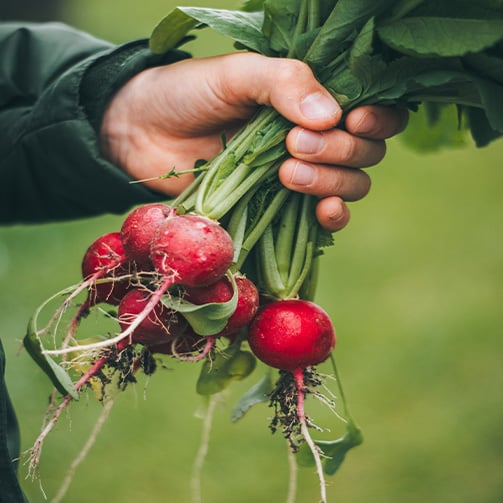Income Disparities
Higher-income individuals show positive outlook (80%) vs. the lowest ones (69%).

In a world grappling with the environmental impact of its food systems, the call for sustainable practices is more urgent than ever. As the global leader in sustainable food and valued experiences, we have developed the International Sustainable Food Barometer, in collaboration with Harris Interactive.
This first edition of our barometer stands out for its focus on amplifying the voices of respondents across different geographies and cultures, shedding light on their understanding of sustainable food and deciphering potential gaps between perceptions, intentions, and behaviors.
Let's delve into the key global learnings unveiled by the first edition of this barometer1, conducted during the summer of 2023 among more than 5,000 people in Brazil, France, the United Kingdom and the United States.
The sense of urgency to adopt sustainable eating practices is pervasive. This urgency transcends geographical and demographic boundaries, resonating particularly strongly with the younger demographic and higher-income groups. We already note that :

How to drive change then?
Two criteria emerge as the top priorities when shopping for food: first and foremost, the price (73%), and then, the taste (62%). They significantly outweigh environmental impact, certifications, and local sourcing in consumer decision-making.
The barometer emphasizes the importance of individual benefits regarding health, taste and savings. While health benefits and cost savings resonate across generations, younger individuals are more attuned to collective benefits such as environmental impact and participating in a movement.
To drive change, respondents point to farmers as primary change agents, followed by the agri-food industry and fellow citizens. Government and NGOs, as well as institutional actors, play secondary roles.

have a positive perception of sustainable food
75%
believe that adopting more sustainable behaviors is an urgent matter
79%
feel that it is difficult to find sustainable products
1/3

emerge as the top priorities when shopping for food
Price and taste
The primary motivation for eating more sustainably in all countries is the expected health benefits
46%
consider the farmers as the most helpful to act in favor of more sustainable food
45%

Creating exceptional moments at the world's largest sporting events

Cultivating inclusive agriculture in South Africa

The Vibrant Mind: A guide to neuroprotective nutrition